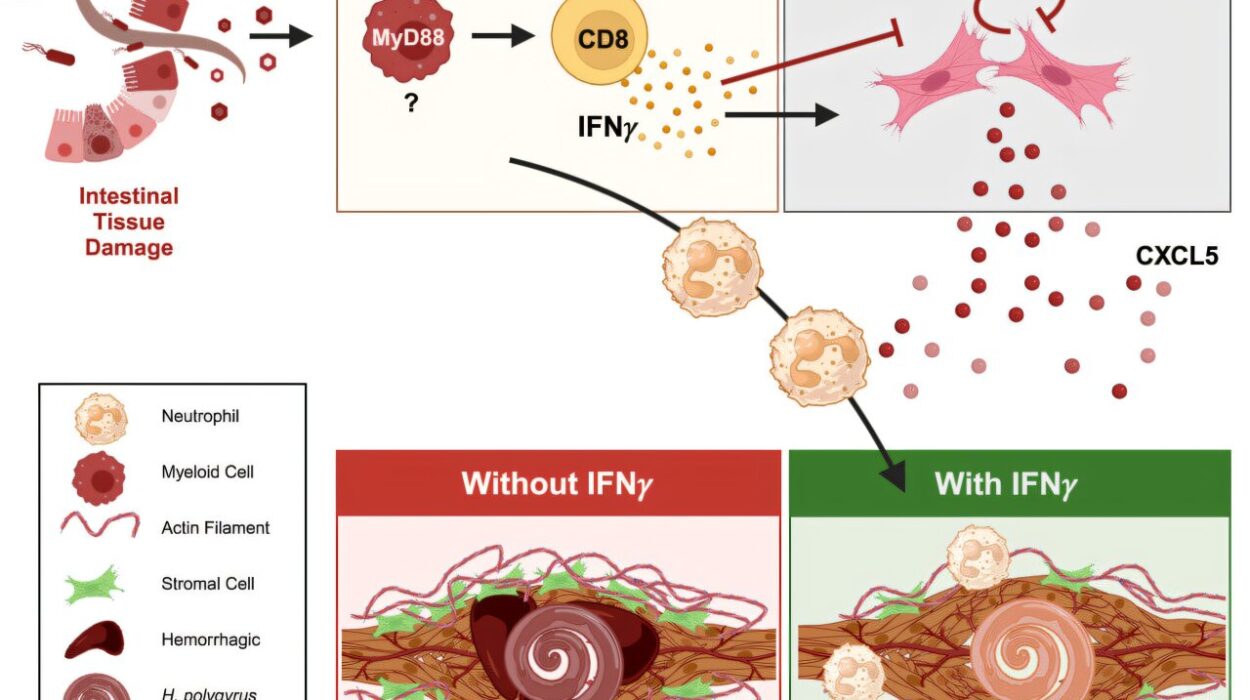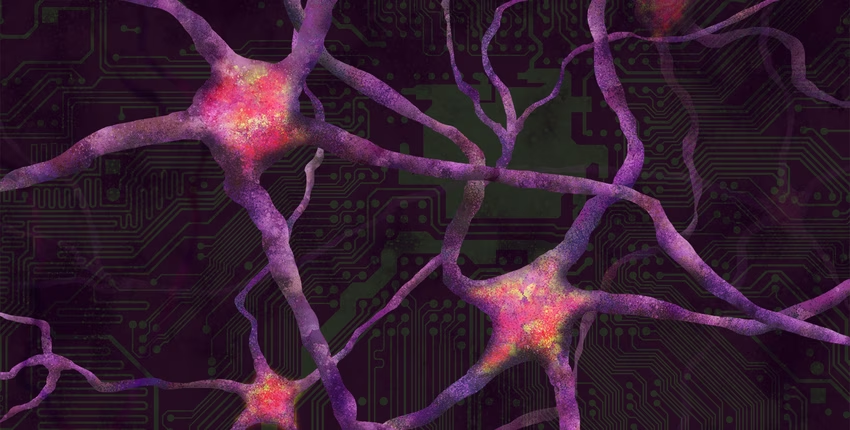One moment you’re laughing at a joke, and the next you’re fighting back tears at a cat food commercial. Your mind races, your chest tightens, and you can’t quite explain why you feel like you’re on an emotional rollercoaster. Mood swings can be confusing, overwhelming, and sometimes downright exhausting. But what’s often at the center of this turbulent storm is something that doesn’t get nearly enough credit for its power: hormones.
Hormones are your body’s chemical messengers, coursing through your bloodstream like silent signals, telling tissues and organs what to do and when to do it. And while they handle everything from metabolism to reproductive health, one of their most subtle and yet profound effects is on your emotions. The connection between hormones and mood swings isn’t just real—it’s foundational to understanding how our emotional landscape works.
The Science of Hormones and the Brain
To understand mood swings, you need to first take a peek into the intricate world of the brain. Your brain, contrary to popular belief, isn’t just a static lump of grey matter. It’s a living, breathing, constantly changing organ that’s highly sensitive to internal chemistry. That internal chemistry is regulated by neurotransmitters like serotonin, dopamine, norepinephrine—and yes, hormones.
Hormones like estrogen, progesterone, testosterone, cortisol, and thyroid hormones all interact with brain chemistry. They influence how neurotransmitters are produced, how they bind to receptors, and how long their effects last. These relationships are subtle but powerful. Even small fluctuations in hormonal levels can dramatically shift your brain’s equilibrium, making you feel more irritable, anxious, elated, or tearful.
What makes it especially complex is that no hormone works in isolation. They dance together, in concert, forming a hormonal symphony that affects everything from your sleep patterns to your appetite to your sex drive. When one note in that symphony is out of tune, your whole emotional song can change.
The Monthly Emotional Symphony of Menstrual Hormones
Perhaps the most commonly discussed example of hormones and mood swings occurs in the menstrual cycle. Estrogen and progesterone, the primary female sex hormones, don’t remain constant—they fluctuate wildly throughout the month. These fluctuations are responsible not only for ovulation and menstruation but also for shifts in mood and cognition.
In the first half of the menstrual cycle, estrogen levels gradually rise. Estrogen is known to have a mood-enhancing effect because it boosts serotonin and endorphin levels. Many women report feeling more energized, optimistic, and socially confident during this phase.
But once ovulation occurs and estrogen begins to decline while progesterone rises, the mood can shift dramatically. Progesterone is often associated with sedation and can make you feel sluggish or emotionally flat. In some women, particularly those who are sensitive to hormonal changes, this phase can bring on symptoms of premenstrual syndrome (PMS) or even the more severe premenstrual dysphoric disorder (PMDD). Irritability, sadness, anxiety, and even depressive thoughts are not uncommon, and they can appear without an obvious external cause.
The cycle is predictable in its unpredictability. One month might feel like a breeze; the next might leave you in emotional quicksand. The frustrating part is that these mood changes are often misunderstood, dismissed, or minimized—by others and even by ourselves. But they are real, physiological responses to very real hormonal changes.
The Wild Ride of Puberty
Puberty is the biological rite of passage into adulthood, but emotionally, it can feel more like being strapped to a rocket with no instructions. As the body begins producing sex hormones in larger quantities—estrogen and progesterone in girls, testosterone in boys—the brain undergoes a massive rewiring process.
Teenagers experience mood swings not only because of hormonal surges but also because their brains are still developing. The prefrontal cortex, which governs reasoning and impulse control, isn’t fully matured until the mid-twenties. Combine that with fluctuating hormones and you have a potent recipe for emotional highs and lows.
It’s not unusual for teenagers to feel like their emotions are outsized or out of control. Anger can come in waves. Sadness might feel endless. Joy might be so intense it borders on mania. These swings are a natural part of development, but they can also be deeply confusing. Understanding that hormones play a role in this emotional maelstrom can help normalize the experience and encourage patience and empathy—from both teenagers and the adults in their lives.
Pregnancy and the Hormonal Kaleidoscope
Few experiences showcase the power of hormones quite like pregnancy. From the moment conception occurs, a woman’s body becomes a hormonal powerhouse, producing human chorionic gonadotropin (hCG), estrogen, and progesterone in levels far exceeding the normal range. These hormones are critical to maintaining pregnancy, but they also significantly affect the brain.
Pregnancy-related mood swings can begin as early as the first trimester. Estrogen and progesterone rise quickly, and that dramatic shift can lead to heightened emotional sensitivity. Some women feel euphoric, while others battle intense anxiety or bouts of sadness. As the body adapts, moods may stabilize, but fluctuations are common throughout pregnancy.
The third trimester can bring a new wave of emotional changes, as discomfort increases and the reality of impending childbirth sinks in. There’s excitement, sure, but also fear, self-doubt, and mood volatility. These emotions are often compounded by sleep disturbances and physical fatigue.
What’s important to remember is that these changes are not signs of weakness or instability—they are natural responses to a body working overtime to create new life. Yet many women feel pressure to appear joyful or serene throughout pregnancy, leading to guilt when emotions feel turbulent. Understanding the hormonal underpinnings of these changes can help lift that burden and replace it with compassion.
Postpartum: The Emotional Cliff
The days and weeks following childbirth are often described as some of the most emotionally intense of a woman’s life. While the birth of a baby is a momentous event, it is also a profound biological transition—and that includes a massive hormonal shift.
Estrogen and progesterone levels, which were elevated during pregnancy, plummet almost immediately after delivery. This drop can trigger what’s colloquially known as the “baby blues”—a period of heightened emotional sensitivity, crying spells, irritability, and mood swings. For most women, this resolves within a couple of weeks.
But for others, the hormonal crash can trigger postpartum depression (PPD), a more severe and longer-lasting condition that includes feelings of deep sadness, hopelessness, anxiety, and even detachment from the baby. PPD affects roughly 1 in 7 women and is increasingly recognized as a serious public health issue.
Hormones aren’t the only factor—sleep deprivation, physical recovery, and identity changes also contribute—but the sudden hormonal shift is a powerful instigator. Recognizing the hormonal roots of postpartum mood changes is essential for early intervention and support. No new mother should feel ashamed for what her body is naturally doing in response to such a monumental transformation.
Menopause and the Long Goodbye to Estrogen
Just as puberty heralds the beginning of reproductive life, menopause signals its conclusion. And just as puberty can cause emotional chaos, so can the hormonal changes of menopause. As the ovaries begin to slow their production of estrogen and progesterone, the hormonal symphony that has governed mood and metabolism for decades starts to shift, sometimes drastically.
The transition to menopause, known as perimenopause, can last for years. During this time, hormone levels don’t simply decline—they fluctuate unpredictably. One day, estrogen may surge; the next, it may drop dramatically. This hormonal rollercoaster can trigger mood swings, irritability, anxiety, depression, and even panic attacks.
These emotional changes are often exacerbated by other symptoms of menopause, like hot flashes, night sweats, and sleep disturbances. The result is a phase of life that can feel like emotional whiplash. Women often report feeling “not like themselves” and struggle with feelings of grief, loss, or invisibility.
And yet, menopause is still stigmatized and under-discussed. Too many women endure it silently, believing their emotional instability is a personal failing rather than a physiological reality. But once again, hormones are key players—and understanding their role is essential to navigating this life stage with grace and strength.
Thyroid Hormones and Hidden Mood Disruptors
While estrogen, progesterone, and testosterone tend to get most of the attention when it comes to mood and hormones, the thyroid gland quietly exerts a powerful influence on emotional health. Thyroid hormones regulate metabolism, but they also affect brain function and neurotransmitter activity.
When thyroid hormone levels are too low—a condition known as hypothyroidism—people often experience fatigue, depression, and cognitive fog. Conversely, when levels are too high—hyperthyroidism—the result can be anxiety, restlessness, irritability, and even mania.
Thyroid imbalances can mimic psychiatric conditions, which means they are often misdiagnosed or overlooked. Many people struggle for years with mood disturbances that are actually rooted in an underperforming or overactive thyroid. A simple blood test can provide answers, but the connection between thyroid health and mental health is still not widely appreciated.
Cortisol, Stress, and the Body’s Alarm System
Cortisol is often called the “stress hormone,” and for good reason. It’s released by the adrenal glands in response to stress, helping your body mobilize energy, heighten alertness, and respond to danger. In the short term, this is a survival mechanism. But when cortisol levels remain elevated for long periods—due to chronic stress—the result can be emotional volatility.
Too much cortisol can interfere with serotonin and dopamine, the brain’s feel-good chemicals. It can impair memory, increase anxiety, and even lead to depression. Over time, the body may become less responsive to cortisol, leading to adrenal fatigue—a state marked by exhaustion, mood swings, and decreased stress tolerance.
Modern life, with its relentless pace and constant demands, often keeps cortisol elevated. And since many people ignore or suppress stress rather than managing it, the emotional consequences accumulate. Understanding cortisol’s role can empower us to take stress management more seriously—not just for our physical health, but for our emotional well-being.
Insulin, Blood Sugar, and Emotional Stability
Insulin is another hormone that doesn’t often get linked to mood, but it plays a critical role. Produced by the pancreas, insulin regulates blood sugar levels, ensuring that glucose can enter cells to be used for energy. When blood sugar levels spike or crash, the result isn’t just physical—it’s emotional.
Low blood sugar, or hypoglycemia, can cause irritability, anxiety, dizziness, and confusion. Many people describe feeling “hangry”—a real, biologically-driven state of agitation that resolves with food. Conversely, insulin resistance—a condition in which cells become less responsive to insulin—can lead to energy crashes, mood dips, and increased risk for depression.
Diet, exercise, and sleep all influence insulin sensitivity and blood sugar regulation. But when these factors are out of balance, so too is our emotional stability. For those dealing with mood swings, looking at blood sugar levels and insulin function can provide valuable insight.
The Gendered Nature of Hormonal Mood Swings
While both men and women experience hormonal fluctuations, the intensity and impact tend to differ. Women’s hormonal cycles are more dynamic and visible, largely due to menstruation, pregnancy, and menopause. As a result, women are often more affected by hormone-driven mood changes.
However, this doesn’t mean men are immune. Testosterone levels also affect mood, energy, and confidence. Low testosterone, especially as men age, can lead to irritability, depression, and emotional flatness. And yet, because male hormonal changes are less dramatic, they are often ignored or dismissed.
There’s a tendency in society to view emotional volatility through a gendered lens—women are “hormonal,” while men are “stressed” or “burned out.” This bias not only trivializes women’s experiences but also prevents men from seeking help for hormone-related mood issues. A more balanced and informed view benefits everyone.
Healing and Managing Hormone-Related Mood Swings
Understanding the hormonal roots of mood swings is the first step—but what can be done about them? The answer is complex and varies from person to person. Some find relief through lifestyle changes: balanced nutrition, regular exercise, sleep hygiene, and stress reduction. Others benefit from hormonal therapy, antidepressants, or natural supplements.
Working with a healthcare provider who understands the endocrine system is critical. Blood tests can reveal imbalances, and treatments can be tailored to each individual’s needs. Importantly, emotional changes due to hormones are not imagined or exaggerated—they are rooted in biology, and they are treatable.
Talking openly about mood swings, without shame or stigma, is part of the healing process. Whether it’s a teenager struggling with puberty, a woman navigating menopause, or someone dealing with thyroid dysfunction, knowing that your emotions have a biological basis can be incredibly validating.
Conclusion: Emotions Rooted in Chemistry, Grounded in Humanity
Mood swings may feel like they come out of nowhere, but they rarely do. Behind the tears, the rage, the laughter, and the emotional fog, there is often a complex symphony of hormones conducting your internal world. Understanding this symphony is not just about biology—it’s about compassion.
Hormones don’t excuse poor behavior or mean we should ignore our emotional reactions. But they offer context. They tell us that our emotional lives are deeply intertwined with our physical selves, and that balance—emotional and hormonal—is worth striving for.
The next time your mood shifts suddenly, pause and consider the intricate chemical conversations happening beneath the surface. You’re not broken or weak. You’re human—and beautifully complex.






